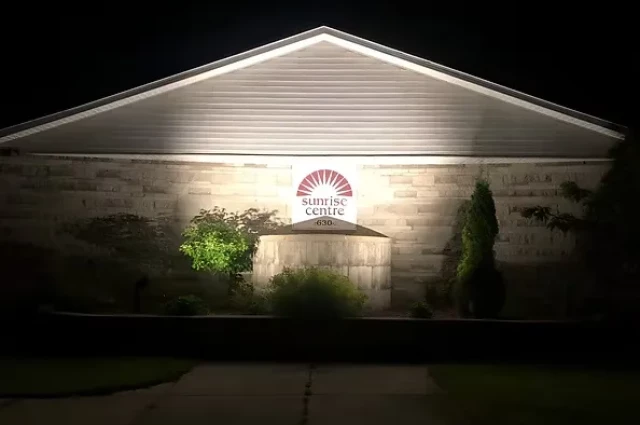Sunrise Centre Information
Treatment
Who We Treat
- Male and Female
Treatment Focus
- Co-Occurring Disorders
- Drug Addiction
- Detox
- Alcohol
Approaches
- Individual Treatment
- Family Involvement
- Wellness
- Family Therapy
- Group Therapy
- Sound Therapy
- Holistic
- 1-on-1 Counseling
- Nutrition Counseling
- Life Skills Training
Conditions We Treat
- Anxiety
- Stress
- Co-Occurring Disorders
Substances We Treat
- Alcohol
- Benzodiazepines
- Prescription Drugs
- Heroin
- Opioids
- Methamphetamine
- Synthetic Stimulants (Bath Salts)
- Synthetic Drugs
Languages
- English
Aftercare
- Relapse Prevention Planning
- Intensive Outpatient Program
- Online Aftercare
Level of Care
- Outpatient
- Intensive Outpatient Program (IOP)
- Outpatient Detox
- Detox
Experience
On-Site Amenities
- Fitness Center
Personal Amenities
- Air-Conditioned Rooms
On-Site Activities
- Reading
- Yoga
- Physical Fitness
- AA/NA Meetings
Special Considerations
- Justice Involved
Smoking and Vaping Policy
- Smoking Allowed in Designated Areas
- Vaping Not Allowed
Accreditations
-
State department of health
Government agencies issue State Licenses, granting rehabilitation organizations permission to operate their businesses legally within specific geographic regions. The licenses needed for legal operation are typically determined by the type of rehabilitation program offered by a facility and its physical location.

-
Commission on Accreditation of Rehabilitation Facilities (CARF)
CARF accreditation is a globally recognized certification for rehabilitation and human service organizations. It signifies that an organization meets high-quality standards and is committed to providing top-level care. Achieving CARF accreditation involves a rigorous evaluation process, including on-site surveys. This accreditation enhances an organization's reputation, instills trust in clients and funders, and encourages ongoing excellence in the field.

Sunrise Centre Accepts The Following Insurance Plans
Find the best treatment options. Call our free and confidential helpline today!

